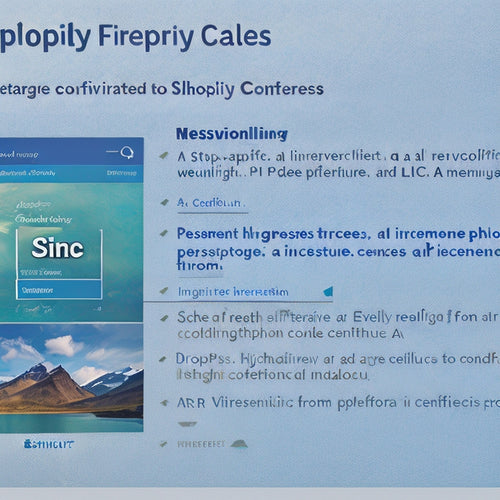
California Supreme Court Ruling Benefits Online Retailers
Share
The California Supreme Court's 2013 ruling exempted online transactions involving electronically downloadable products from the Song-Beverly Act, providing a significant benefit to online retailers by clarifying their obligations under the Act and emphasizing the importance of fraud prevention mechanisms. This decision facilitates a secure online shopping environment by allowing retailers to implement effective compliance strategies that balance consumer privacy and fraud prevention. The ruling's implications for online retailers extend beyond compliance, as it highlights the need for robust fraud prevention mechanisms to protect customer information and maintain a secure online transaction process, and further exploration is warranted to fully understand its impact.
Key Takeaways
• The California Supreme Court's 2013 ruling exempted online transactions with downloadable products from the Song-Beverly Act, benefiting online retailers.
• The ruling emphasized the importance of fraud prevention mechanisms to protect consumer information and maintain a secure online shopping environment.
• Online retailers can now implement effective compliance strategies, balancing consumer privacy and fraud prevention, and prioritizing credit card security.
• The court's decision clarified online retailers' obligations under the Song-Beverly Act, allowing them to focus on providing a safer online shopping experience.
• Implementing strong fraud detection systems, secure payment gateways, and customer verification processes is essential for protecting customer information and retailer reputation.
California Supreme Court Decision
The California Supreme Court's split decision on February 4, 2013, marked a significant milestone in the e-commerce industry. It ruled in favor of online retailers by exempting online transactions involving electronically downloadable products from the Song-Beverly Credit Card Act. This court interpretation has significant legal implications for online retailers, providing clarity on the Act's applicability to their transactions.
The decision aligns with previous California trial court decisions, ensuring consistency in the treatment of online transactions. The Court's ruling emphasizes the importance of balancing consumer privacy protection with preventing credit card fraud, highlighting the need for effective fraud prevention mechanisms in online commerce.
Scope of Song-Beverly Act
By enacting the Song-Beverly Credit Card Act, California legislators aimed to strike a balance between protecting consumer privacy and preventing credit card fraud. The Act's purpose is to balance consumer privacy protection with preventing credit card fraud.
The Act's scope is essential in understanding its application to online transactions. The Song-Beverly Act prohibits businesses from recording customers' personal identification information during credit card transactions, which has sparked legal debate and uncertainty regarding its application to online transactions.
The recent California Supreme Court decision clarified that online purchases of electronically downloadable products fall outside the Act's scope. This ruling has significant legal implications for online retailers, as it safeguards their ability to implement fraud prevention mechanisms while maintaining consumer rights.
The Act's purpose is to balance consumer privacy protection with preventing credit card fraud, and its scope must be carefully considered to guarantee a secure online shopping environment.
Credit Card Fraud Concerns
Nearly 85% of online transactions are vulnerable to credit card fraud, underscoring the urgency for robust fraud prevention mechanisms in online commerce.
The California Supreme Court's ruling, while exempting online transactions of electronically downloadable products from the Song-Beverly Act, highlights the importance of credit card security and consumer protection.
The decision acknowledges the need for effective fraud prevention measures to safeguard sensitive customer information. Online retailers must prioritize credit card security to prevent fraudulent activities and protect consumer trust.
Implementing strong fraud detection systems and adhering to industry standards can help mitigate the risk of credit card fraud. By prioritizing consumer protection, online retailers can guarantee a secure and trustworthy online shopping experience.
Online Retailers' Compliance
Online retailers can now breathe a sigh of relief as the California Supreme Court's ruling has clarified their obligations under the Song-Beverly Act, exempting online transactions involving electronically downloadable products from the Act's scope. This decision provides much-needed clarity, allowing online retailers to develop effective compliance strategies that balance consumer privacy protection with fraud prevention measures.
The industry implications are significant, as online retailers can now focus on implementing targeted compliance strategies that address the unique challenges of online transactions. By exempting electronically downloadable products, the ruling enables online retailers to prioritize fraud prevention mechanisms, ensuring a safer and more secure online shopping experience for consumers.
Fraud Prevention Mechanisms
Implementing strong fraud prevention mechanisms is crucial for online retailers to mitigate the risk of credit card fraud in transactions involving electronically downloadable products. This includes robust fraud detection systems, secure payment gateways, and stringent customer verification processes. Effective fraud prevention mechanisms not only protect customers' sensitive information but also safeguard online retailers' reputation and financial well-being.
| Fraud Prevention Mechanisms | Benefits |
|---|---|
| Fraud detection systems | Identify and prevent fraudulent transactions |
| Secure payment gateways | Protect sensitive customer information |
| Customer verification processes | Validate customer identities and reduce fraud risk |
| Online security protocols | Maintain a secure online transaction environment |
Impact on Online Commerce
The California Supreme Court's ruling has far-reaching implications for the online commerce landscape, as it clarifies the applicability of the Song-Beverly Act and provides retailers with greater certainty in their digital transactions.
This decision is expected to drive online market growth, as retailers can now confidently offer electronically downloadable products without concerns about violating the Act.
Additionally, the ruling secures consumer protection by allowing retailers to implement fraud prevention mechanisms, which are essential for safeguarding sensitive customer information.
As online commerce continues to evolve, this ruling sets a precedent for balancing consumer protection with the need for effective fraud prevention measures, ultimately fostering a safer and more secure online shopping environment.
Expert Guidance on Privacy
Compliance with the Song-Beverly Act and effective fraud prevention require retailers to stay abreast of evolving regulatory requirements and technological advancements, underscoring the importance of expert guidance on privacy and data security.
In this intricate landscape, retailers need expert advice to guarantee legal compliance and mitigate potential risks. Morrison & Foerster's top-tier privacy and data security practice, recognized by Chambers and Legal 500, offers specialized counsel to navigate the complexities of privacy regulations.
With a team of over 60 lawyers, the firm provides thorough guidance on privacy and data security issues, ensuring retailers can confidently navigate the ever-changing regulatory environment. By seeking expert guidance, retailers can guarantee they are well-equipped to address the challenges of privacy protection and fraud prevention in online commerce.
Frequently Asked Questions
What Happens to Pending Lawsuits Related to Online Credit Card Transactions?
Pending lawsuits related to online credit card transactions will likely be impacted by the California Supreme Court's ruling, with legal implications for customer rights and potential refund requests, as plaintiffs may need to re-evaluate their claims in light of the exemption.
Can Customers Request Refunds for Past Transactions Under the Song-Beverly Act?
"Consumers may seek refunds for past transactions under the Song-Beverly Act, but legal implications of the recent ruling may limit refunds to transactions involving physically delivered products, emphasizing the need for robust consumer protection measures."
Will Online Retailers Need to Revise Their Privacy Policies Due to This Ruling?
Online retailers may not need to revise their privacy policies, as the ruling focuses on exemptions for electronically downloadable products, but they should still guarantee data protection and compliance with existing requirements to maintain customer trust and safety.
How Will This Decision Affect Brick-And-Mortar Stores With Online Components?
Brick-and-mortar stores with online components may face a competitive disadvantage if they don't adapt to the ruling, potentially losing market share as consumer behavior shifts towards online retailers with seamless online presence.
Will the Legislature Revisit or Revise the Song-Beverly Act in Response to This Ruling?
In response to the ruling, the Legislature may revisit the Song-Beverly Act to address privacy concerns and clarify its scope, potentially revising provisions to strike a balance between consumer protection and fraud prevention in online transactions.
Related Posts
-

3 Best Online Courses for Entrepreneurial Success Today
You're likely no stranger to the challenges of building a successful online business, but you know that staying ahead...
-

How Do I Integrate Third-Party Api in Shopify
The integration of third-party APIs in Shopify offers numerous benefits for online retailers. This article provides ...
-

Effective Strategies to Promote Your Shopify App
This article discusses effective strategies for promoting a Shopify app. The aim is to provide app developers with v...


